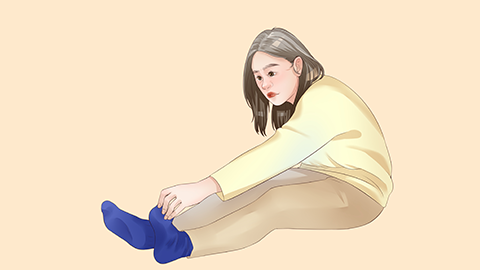What causes leg cramps at 34 weeks of pregnancy?
Leg cramps at 34 weeks of pregnancy may be caused by calcium deficiency, cold exposure to the legs, lower extremity varicose veins, hypomagnesemia, or gestational hypertension. These can be improved through nutritional supplementation, keeping warm, and medical treatment. If cramps occur frequently or are accompanied by swelling or worsening pain, prompt medical attention is necessary.
1. Calcium deficiency: During pregnancy, the fetus requires large amounts of calcium for bone development. Insufficient maternal calcium intake can lead to low blood calcium levels, triggering leg muscle spasms. It is recommended to consume more calcium-rich foods such as milk and shrimp skins, take prenatal calcium supplements as directed by a physician, and combine them with vitamin D to enhance absorption.
2. Cold legs: Inadequate leg warmth during sleep can cause blood vessel constriction and stimulate muscles, leading to episodic cramping. It is advised to wear loose-fitting long pants while sleeping, keep legs well covered, and avoid direct exposure to air conditioning or fans on the lower limbs.

3. Lower extremity varicose veins: Increased blood volume and uterine pressure on veins during pregnancy can impair blood return in the legs, causing insufficient muscle perfusion and resulting in cramps, often accompanied by visible bulging veins and aching or heaviness in the legs. It is recommended to use medical compression stockings and medications such as diosmin tablets or horse chestnut extract (e.g., Venoruton) under medical guidance to relieve symptoms.
4. Hypomagnesemia: Magnesium requirements increase during pregnancy; inadequate intake or metabolic abnormalities can lead to low serum magnesium levels, affecting muscle contraction and causing leg cramps. Under medical supervision, medications such as potassium magnesium aspartate tablets, magnesium sulfate injection, or magnesium gluconate oral solution may be used to improve symptoms.
5. Gestational hypertension: Elevated blood pressure during pregnancy impairs circulation in the lower limbs, and vascular spasms can lead to muscle ischemia and cramping, often accompanied by dizziness and leg edema. Under medical supervision, medications such as labetalol tablets, nifedipine sustained-release tablets, or methyldopa tablets may be prescribed to manage symptoms.
Maintain a balanced diet rich in calcium and magnesium, engage in moderate activities like walking and leg massage to promote circulation, ensure proper leg warmth to prevent chilling, and get sufficient rest to help alleviate leg discomfort.




